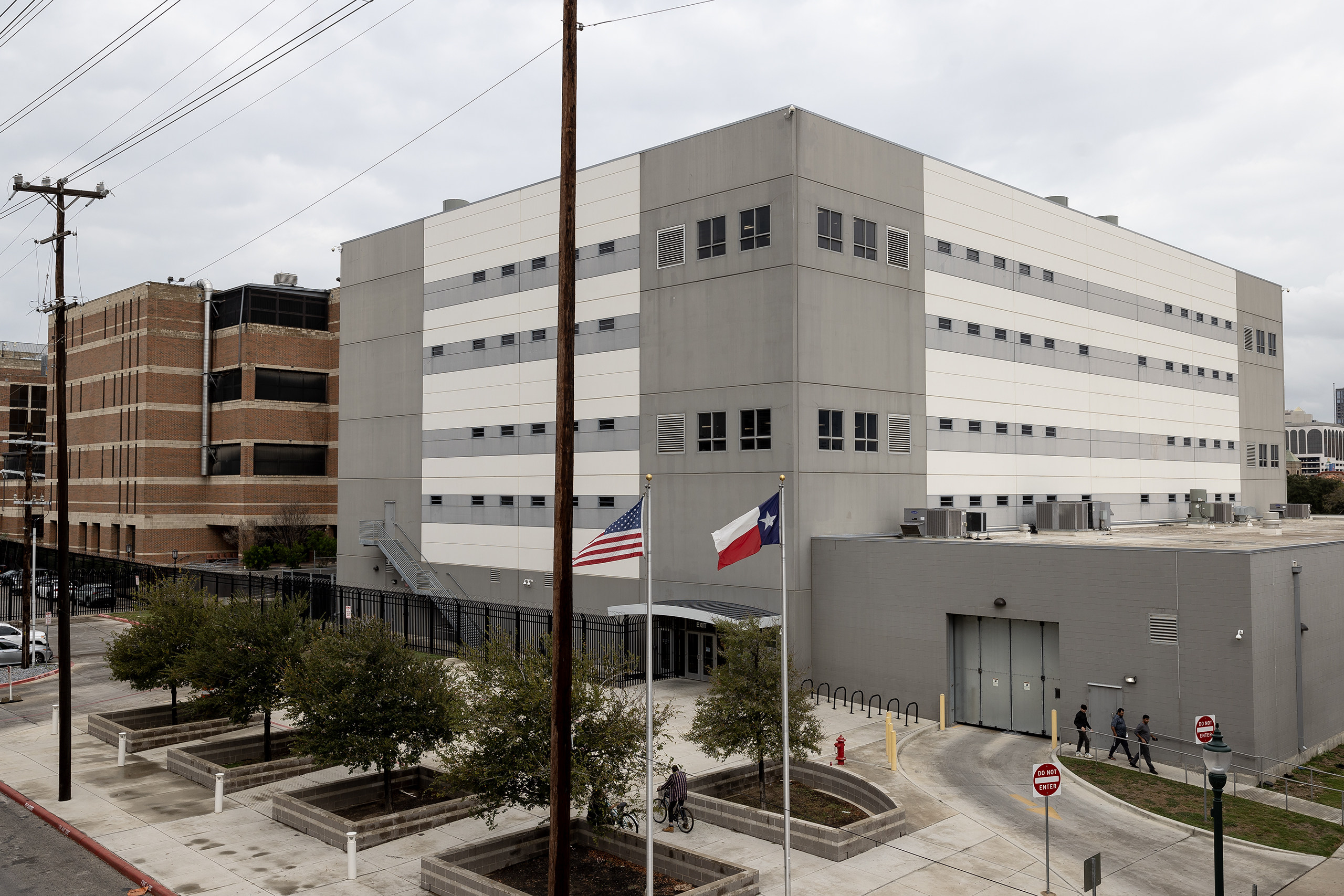Bexar County has officially transferred responsibility for jail intake mental health and substance use screenings to University Health, concluding a six-year contract with the Center for Health Care Services (CHCS). This significant change consolidates all medical and behavioral health assessments under one provider for the first time since the Justice Intake and Assessment Annex (JIAA) opened in late 2018.
Previously, CHCS conducted mental health screenings while University Health managed medical intake at the facility. Following the transfer, University Health will oversee both medical and behavioral health treatment for detainees. This move is part of a broader strategy to enhance the efficiency of service delivery within the county’s criminal justice system.
In October 2023, Bexar County’s Office of Criminal Justice commissioned a study from the University of Texas Health Science Center at Houston to review the processing of detainees at the annex. The study, led by Dr. Alexander Testa, presented findings in February that highlighted issues such as fragmented communication and overlapping responsibilities among agencies operating at the annex. The report recommended consolidating screening and treatment under a single provider to improve the process.
Bexar County’s Department of Public Health, led by Dr. Andrea Guerrero, began exploring ways to implement the recommendations. Guerrero noted that University Health was better positioned to manage both medical and mental health services, stating, “University Health provides the physical services in the JIAA, but they also are the mental health providers once someone moves over to the jail.”
The recommendation to change providers was presented to the county in August, and it received approval as part of the fiscal year 2026 budget on September 9. University Health President and CEO Edward Banos characterized the transition as a step toward better continuity of care. He emphasized the benefits of having one medical record for individuals undergoing both medical and mental health assessments.
Conversations about this transition began months before the contract change, as county officials sought to determine whether University Health could assume the intake services if the existing agreement with CHCS was not renewed. This shift reportedly surprised CHCS, which had been responsible for mental health screenings at the annex. CHCS President and CEO Jelynne LeBlanc Jamison expressed confusion about the sudden decision, noting that they were not informed of any impending changes until shortly before the county’s recommendation to switch providers.
Jamison explained that CHCS had engaged with Bexar County for months to understand the findings of Dr. Testa’s evaluation, but they were notified of the decision just the day before it was presented to the Commissioners Court. “Much to our surprise, we were notified the day before the county went to Commissioners Court to recommend that they contract with University Health for JIAA assessment services,” Jamison said.
CHCS’s role in the annex ended on September 30, with most staff members reassigned to other programs. University Health commenced its screenings on October 1, without a transitional period in place. Bexar County Public Health played a crucial role in ensuring staffing continuity during this transition, as University Health trained new personnel.
Banos acknowledged the county’s support during this period, stating, “They were committed to making sure that we have all the staff up and running.” University Health is expected to fully take over staffing responsibilities by November 10.
Dr. Guerrero mentioned that the decision to consolidate screenings was discussed with both agencies prior to the budget approval. “We informed CHCS prior to the first court date where we made the first presentation in August,” she said. Despite the change, Guerrero emphasized that CHCS remains a vital partner in Bexar County’s behavioral health network.
CHCS will continue to operate other essential mental health programs within the county, including jail-based competency restoration initiatives and assisted outpatient treatment for the courts. Jamison underscored the importance of expanding diversion options outside the jail, stating, “We continue to provide all of the outpatient services that we were providing before.”
While Jamison acknowledged the county’s intent to streamline operations at the annex, she raised concerns about whether changing providers would resolve the structural issues identified in the UTHealth study. She stated, “If they don’t address the technology and software upgrades, if they don’t address the staffing, if they don’t address the leadership in charge of that facility and the coordination required, then none of it will matter.”
This transition marks a notable shift in how Bexar County handles mental health intake screenings, with potential implications for the treatment of individuals within the criminal justice system.







